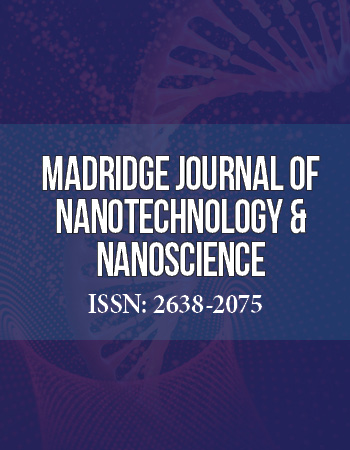3rd International Nanotechnology Conference & Expo
May 7-9, 2018, Rome, Italy
Targeted Drug Delivery to Solid Tumours using Porous Silicon Nanoparticles
1Melbourne Centre for Nanofabrication, Australia
2Monash Institute for Pharmaceutical Sciences, Monash University, Australia
Targeted approaches to deliver anti-cancer drugs have the potential to achieve improved efficacy and at the same time reduced side effects. In fact, this is one of the cornerstones of nanomedicine.
We are exploring the use of high porosity biodegradable porous silicon and genetically engineered biosilica nanoparticles that are loaded with chemotherapy drugs or siRNA and also display on the particleʼs periphery targeting moieties such as cell-surface antibodies recognising cognate ligands highly expressed on the surface of tumour cells. One approach centers around porous silicon nanodiscs. The process relies on a combination of colloidal lithography and metal-assisted chemical etching. Height and diameter of the pSi nanodiscs can be easily adjusted. The nanodiscs are degradable in physiological milieu and are non-toxic to mammalian cells. In order to highlight the potential of the pSi nanodiscs in drug delivery, we carried out an in vitro investigation which involved loading of nanodiscs with the anti-cancer agent camptothecin and functionalization of the nanodisc periphery with an antibody that targets receptors on the surface of neuroblastoma cells. The thus prepared nanocarriers were found to selectively attach to and kill cancer cells. In a second approach, we used natural nanoporous biosilica from the diatom Thalassiosira pseudonana. The biosilica was genetically engineered to display GB1, an IgG binding domain of protein G, on the biosilica surface, which allowed for the attachment of cancer cell targeting antibodies and the adsorption of nanoparticles loaded with anti-cancer drugs. In a final approach, we engineered porous silicon nanoparticles to deliver siRNA to successfully downregulate drug transporter proteins in tumour cells.
Biography:
Maria Alba Martin is pursuing postdoctoral studies under the guidance of Professor Nicolas Voelcker. Professor Nicolas Voelcker is the Scientific Director of the Melbourne Centre for Nanofabrication, Professor at the Monash Institute of Pharmaceutical Sciences at Monash University and Science Leader at the Commonwealth Scientific and Industrial Research Organisation (CSIRO). His key research interest lies in the fabrication and surface modification of porous semiconductor materials for applications in biosensors, biochips, biomaterials and drug delivery. A core research activity in his laboratory is the study of porous silicon based nanostructures and their surface chemistry. A current focus is the development of new nanostructured materials for biosensors, biochips, biomaterials and drug delivery.
He has authored over 330 peer-reviewed journal articles with over 7000 citations.


